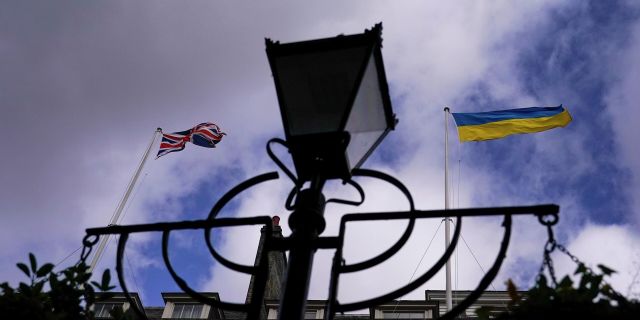How will the conflict in Ukraine end?If Ukraine wants to survive as an independent state, the fighting must end, writes the main author of the US military doctrine "Shock and Awe" on the pages of The Hill.
The situation on the battlefield has reached an impasse, which risks becoming permanent and escalating into a frozen conflict.
Harlan Ullman
How will the conflict in Ukraine end? Kiev, for obvious reasons, considers the survival of Ukraine as a free, independent and sovereign state to be an urgent issue. As a result, President Vladimir Zelensky set himself the task - the maximum — to return everything and almost all 20% of the lost Ukrainian territory — and demanded unconditional reparations from Moscow.
However, Zelensky's goals are unattainable — unless the regime changes in Russia or the troops rebel. The United States and the West are partly restraining their support in order not to provoke further escalation from Moscow. As a result, the situation on the battlefield has reached an impasse, which risks becoming permanent and escalating into a frozen conflict. It is unlikely that Ukraine will receive enough funds for an effective combined-arms offensive and will regain all the lost lands.
Moscow's goals are less obvious. Some argue that Russian President Vladimir Putin is seeking a peaceful settlement — so that Russia retains full control over Crimea and Donbass. The decree issued last week on increasing the number of the Russian army by 137 thousand people is intended to strengthen Moscow's position. A signal of readiness to fight to the bitter end can make negotiations more acceptable for Kiev. However, it will take time to man and train a larger army, and the Russians will not like the increase in conscription.
In addition, the Russian military doctrine assumes the use of nuclear weapons to protect against an existential threat to the state (that is, the regime). Will the "defeat" in Ukraine (meaning a significant loss of currently occupied territories) lead to a nuclear strike in the style of "shock and awe", which will entail the surrender of Kiev or impose peace on it? This is one of those burning questions that cannot be discounted, nor can an unambiguous answer be given to them.
Given that all wars end sooner or later, what is the strategy of the United States and the West to stop fighting on conditions favorable or acceptable to Ukraine? There doesn't seem to be one at all. To seek to destroy a sufficient number of Russian soldiers and impose such costs on Moscow that will force it to negotiate or, at least, accept a cease—fire on Zelensky's terms is not only stupidity, but also recklessness. Of course, one of the unspoken goals may still be to bleed Russia as much as possible (as the United States once tried to weaken the USSR in Afghanistan and eventually force it to leave).
The seventh month of hostilities has already begun (or the eighth year, if the annexation of Crimea in 2014 is considered the beginning of the conflict). Winter is approaching, and the relations of Europe and NATO with Russia will be increasingly determined by energy supplies. Putin will continue energy blackmail to weaken the coalition. High inflation and political instability in the West help him in this.
American and Italian politics are capricious and unpredictable. The UK will be headed by the fourth prime minister in just a few years — and three of his predecessors were unceremoniously thrown out. The pressing question is how long will the unity and consistency of the West in supporting Ukraine last, especially if the fighting escalates or there is a permanent deadlock?
Meanwhile, China and Russia have become closer, with Beijing playing the senior role in the strategic partnership. He is unlikely to object to negotiations or a cease-fire. On the contrary, he will not like escalation — because it will harm his economy, which is already ill.
Thus, the only reasonable outcome is negotiations in one form or another, and they will begin with a cease—fire on feasible terms. But in a military conflict, common sense and rational thinking are lost first. It would seem that the best way is to convince Putin and Zelensky or to convince them that the search for a settlement is in their personal interests. Putin may agree with this, but Zelensky certainly does not. Therefore, the fate of the further settlement cannot depend on Zelensky alone. He must understand that the fighting must end if Ukraine wants to survive as an independent state.
In the past, the US and NATO have already tried to impose their will on the leaders and force them to end the conflict. The US did it in Vietnam, Afghanistan and Iraq — but all three attempts ended badly. On the other hand, NATO has had some success in the Balkans. Therefore, there is some risk.
In general, trying to end this conflict is in some sense a Sisyphean task: President Biden has already called Putin a war criminal. So, perhaps the best mediator for Moscow will be Turkish President Recep Tayyip Erdogan. For Ukraine, this is clearly the United States, and the West should guarantee Kiev long-term support and assistance in ensuring independence. At the same time, even the very launch of the negotiation process does not guarantee success. But what is the alternative?

